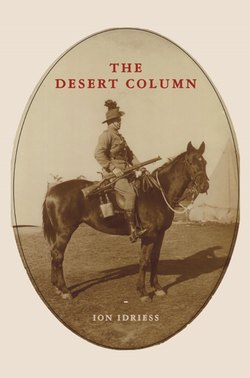Читать книгу The Desert Column - Ion Idriess - Страница 6
На сайте Литреса книга снята с продажи.
INTRODUCTION
TO THE 100TH
ANNIVERSARY
EDITION
ОглавлениеIf Ion Idriess’ stories were an American narrative, he would no doubt have inspired a dozen major feature movies. For over four decades he chased down the great yarns that have come to define Australia’s sense of itself, pumping out over 50 books that told his countrymen and the rest of the world a prodigious array of stories that are now part of our national mythology.
Desert Column is one of his earliest books, a diary of his experiences during World War One, as a trooper in the 5th Light Horse Regiment that served first in Gallipoli and then in the Gaza desert. When Lt General Harry Chauvel, the Australian commander of the Desert Mounted Corps, made his desperate decision to order an attack on the town of Beersheba late in the afternoon of 31 October 1917, Trooper Idriess watched on as the Australians wrested victory from imminent catastrophe and seized the town.
It is impossible not to feel the rush of blood as you read Idriess’ thrilling account of that extraordinary day. By this stage of the war any quaint 19th Century notions that modern machine-guns and artillery could be breached by cavalry had been dispelled by the awful realities of the horrors of the Western Front in France and Belgium. Perhaps that is why what happened that day on the outskirts of this Gaza desert town is remembered and immortalised to this day as one of the great feats of the war – precisely because it was such a preposterous decision that took the Turks by surprise.
The Australians and New Zealand soldiers and their horses of the mounted Anzac force were near collapse from lack of water and heat exhaustion and hours of British infantry attacks had failed to seize the town. As Idriess watched on, his mates from the 4th Light Horse began their charge on the town near sunset. His account of the 4th Light Horse’s desperate final charge is breath-taking.
“Then someone shouted, pointing through the sunset ... There, at the steady trot, was regiment after regiment, squadron after squadron coming, coming, coming! It was just half-light, they were distinct yet indistinct. The Turkish guns blazed at those hazy horsemen but they came steadily on.”
Desert Column gives the reader a ringside seat to the realities of service as a mounted Anzac soldier, especially during the last great massed cavalry charge in recent modern history. It is irrepressibly laconic Australian in its prose and dry wit. What Ion Idriess made his career on was the notion that there were distinctively Australian stories that could replace the jingoistic and often nationalistically turgid myths of British Empire. As a writer, Idriess traced the origins of Australia’s sense of itself.
Ross Coulthart
